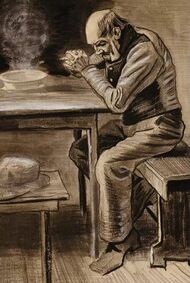 the healing and strengthening will come the healing and strengthening will come I have come to really enjoy working with my fitness trainer. Because she knows her craft so well and is especially attentive as I do each exercise, she has helped me to grow in strength and balance. In order for me to grow she gives me challenging workouts, and rightly so, or else I would not be gaining anything except some fun conversation twice a week. Plainly put, this means there is some measure of ‘pain’ involved. Let me be clear: it is beneficial discomfort, an important part of the process of becoming fitter. When my muscles were tight during one particular session, as she stretched them she told me to “relax into the pain.” She was right: once I stopped fighting it and went with it, the pain seemed to lose its power. This bit of wisdom also applies to our spiritual life. When we are struggling with an issue, memory, wound, or character weakness that needs strengthening, or when we experience dryness in prayer, we have to go into it, to face it head-on and then work it through with disciplined prayer. There is no way around it, only through it. We do not have to do this alone: if we trust God enough to share our pain and struggle with Him, the healing and strengthening will come. A way to do this is to enter into the wounds of Christ, to pray with the mystery of His suffering. What this does is to help us change our interior disposition toward our pain which then enables us to persevere and even suffer with joy knowing He is intimately with us.*  we learn to experience our pain differently we learn to experience our pain differently To enter into the wounds of Christ is not to deny the presence of our pain by pretending it is suddenly gone. Instead, we join our suffering to His, embracing our pain rather than fighting it. Entering into the wounds of Christ is transformative: through Him, we do experience our pain, but we learn to experience our pain differently. It means to enter into His Heart, letting Him hold and transform us through the power of His mercy and love. We know this, yet we often forget that the power of His wounds is in the love with which He bore them for us. Therefore, His wounds can teach us more about what love really is: it is sacrificial, humble, and selfless, and by entering in, we are empowered to love more like He does. Just as with my trainer who sometimes holds on to me to prevent me from losing my balance, we can rely on Jesus to do the same. He does not do the work for us, but He helps with the transformation of our hearts: the stronger we become, the more we trust that when suffering breaks open our hearts, they are actually expanding in compassion, helping us to develop a disposition of mercy and forgiveness, becoming less judgmental and more selfless. That is, our own suffering can help us to become more sensitive to the suffering of others, to have a deeper understanding which transcends our focus on self and directs us to lift up others. If we let it, suffering becomes a transfiguration of heart which will transform and deepen how we love.  being with Christ in the silence being with Christ in the silence Just as fitness training requires discipline and strenuous work, so do our spiritual practices.** The spiritual life, particularly prayer, requires discipline, and yes, sometimes hard work. If we truly want to grow in intimacy with God and in spiritual strength we have to remember that spirituality is not a separate part of our lives, but permeates the whole of who we are. Therefore, we must prioritize prayer as part of every day. Sometimes we will find prayer dry, even painful, and when this happens we can enter into the wounds of Christ, just being with Him in the silence. In one of His discourses Jesus said, “…unless a grain of wheat falls to the ground and dies, it remains just a grain of wheat; but if it dies, it produces much fruit.” (John 12:24) In other words, if we do not suffer a little in this process of growing spiritually, especially in letting go of that which holds us bound, then we will not have the new life of holiness that we are offered. The pain of this ‘death’ is temporary, even if it does not feel like that at the moment. As St. Paul said, “This slight momentary affliction is preparing us for an eternal weight of glory beyond all measure.” (2Cor 4:17)  ...we will be entering into His heart ...we will be entering into His heart Entering into the wounds of Christ teaches us to love as Jesus does, a love to which all disciples are called. To suffer within the wounds of Christ, in the Silence of our God who knows all things, always moves us outwards in selflessness. To love this way will involve pain from time to time, but it always leads to the joy of new spiritual strength, a deeper sense of how loved by God we truly are, and it leads to growth in holiness. Just as the work of physical training is arduous and requires a bit of sweat and encouragement, guidance, and goals to meet, our spiritual life is no different. And just as my trainer accompanies me, our spiritual hard work is always accompanied by the Lord. If we intentionally enter into the wounds of Jesus, we will also be entering into His Heart. It will make us stronger, especially in the most challenging areas of love, and it will give us the peace we long for as we rest in Him alone.  may we...have our hearts transformed may we...have our hearts transformed May we enter into the wounds of Christ to have our hearts transformed! May we find healing and wholeness within the wounds of Christ! May we persevere in the hard work of growing in the spiritual life, particularly in our prayer! And may we be true disciples as agents of healing and bearers of His love! Let us meet within the Wounds of Christ! Peace! ©Michele L. Catanese * A note on suffering with joy: When we let go, or relax into it, the pain no longer has power over us and we rise above it. This is how one suffers with joy, an often misunderstood concept. The joy we experience when entering into the wounds of Christ is not emotional, but spiritual because we allow His sacrificial love to empower us to persevere through just about anything. It is also important to remember that we are never to choose suffering for its own sake. Suffering comes unbidden, but rather than avoiding it or denying it, we can join ourselves to the Lord, offering our struggle in the silence of prayer as a gift to Him. Entering into His wounds is to come into deeper understanding of the gift Jesus gave us in our salvation and it is to respond by extending that love to others through acts of sacrifice, forgiveness, toil, and justice. On the surface, this is difficult to embrace, but as with physical conditioning, the result is growth, particularly growth into a deeper experience of the Love of God accompanied by a more profound experience of extending that love to our brothers and sisters. ~ Also, depending on the wound or weakness being worked through, a trained spiritual director can help a directee to work through spiritual issues. ** In a striking passage in The Spiritual Exercises of St. Ignatius of Loyola, St. Ignatius says that God labors for us. What follows are exercises (meditations) that teach how we, too, can labor for God.* In other words, God works for us that we might come to know and love Him better, to which we respond through our hard work of service. Images: 1. Drawing; The Prayer, by Vincent van Gogh (1882) You can find some information on this drawing at https://www.vincentvangogh.org/the-prayer.jsp 2. Fresco painting; The Resurrection (Empty Tomb) by Blessed Fra Angelico. The resurrection, beginning with their encounter with the angel, taught the women to experience their pain differently. You will notice Mary the Mother of Jesus added to the left corner by the artist.) 3. My photo; taken in Granna, Sweden. 4. Icon, Nuestro Salvador de las Sandias by Fr. William Hart McNichols. You can find this icon at https://fineartamerica.com/featured/nuestro-salvador-de-las-sandias-012-william-hart-mcnichols.html 5. My photo; sunset in Mayaguez, Puerto Rico. Note: In compliance with GDPR rules, I wish to make it clear that I do not gather any information on any of my readers at any time.
Chris Pyle
9/19/2023 05:00:06 pm
Michelle, thank you for your words of wisdom on suffering and prayer. It shouldn’t amaze me (but somehow it always does) when God puts the people we need in our path. God bless! Comments are closed.
|
Heart Speaks to Heart
|

 RSS Feed
RSS Feed

